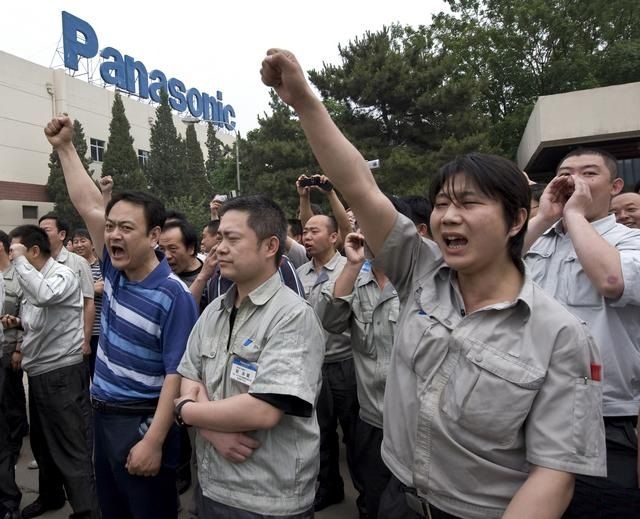
China’s transition to state-led capitalism over the past three decades has generated numerous social struggles against the state and capital.
With China’s ascent in the capitalist world economy, the social struggles inside China not only have a significant domestic impact, but increasingly international ramifications.
As China celebrates the Year of the Dragon, it is an opportune time to critically review the situation for social struggles and their prospects for the future.
State and elite politics
More than two decades after the collapse of the Soviet Union, China remains one of a handful of nominally “socialist” countries in the world and definitely the most powerful country among them.
Despite social upheavals in the 1980s and 1990s, the Chinese Communist Party (CCP)-led regime has so far proved extremely resilient and stable.
It has done so, firstly, by restoring capitalist relations of production and reintegrating China into the capitalist world economy — offering a cheap but disciplined labour force and a potentially huge consumer market.
Secondly, by maintaining political authoritarianism and a repressive security apparatus that can crush dissent while expanding freedom and liberty for the emerging urban middle class.
And thirdly, by resting the legitimacy of the regime on continuing to deliver economic growth and promoting popular nationalism.
The formula appears to have worked well and kept the CCP in power, but each element in the formula is contradictory — enhancing the rule of the party-state while also generating oppositions.
Consequently, China’s capitalist system has come under sustained strains from social struggles from below, as these contradictions intensify. It is against this background that we should understand China’s politics.
In late 2012, the CCP will manage a once-in-a-decade leadership transition at its 18th National Congress — only the fourth change of top leaders since the death of Mao in 1976.
President Hu Jintao and Premier Wen Jiabao, who came to power in 2002, along with five other members in the nine-member Standing Committee of the Politburo, will step down after a decade characterised by widening social inequalities and deepening social tensions.
There were hopes for a New Deal under Hu and Wen after a decade of intense market liberalisation, corporate restructuring and the state-propagated discourse of “harmonious society”.
However, their decade of rule merely slowed down the pace of capitalist restoration in response to social struggles. It made few significant changes to China’s authoritarian capitalist system.
Wen sometimes strikes a sympathetic and popular posture, but few will mourn Hu and Wen’s departure.
New leaders
At the congress, they will be replaced by a new generation of leaders headed by Xi Jinping and Li Keqiang.
There is still some mystery and speculation about what Xi and Li aim to do in power, as they have been keeping a low profile. But there is no indication that they are anything more than loyal party apparatchiks.
However, even a highly orchestrated and supposedly orderly transition to trusted leaders cannot escape the reality of deep social tensions increasingly reflected in elite factional struggles.
A clear example is the feud between Bo Xilai (the party secretary of Chongqing city) and Wang Yang (the party secretary of Guangdong province).
Both Bo and Wang are expected to be elevated into the standing committee, but in recent years made public their disagreement over the direction of China’s economy.
On the one hand, Wang, who presides over the export-dominated Guangdong province, has made clear his priority of making China’s economic cake bigger, meaning more unfettered market economic growth.
On the other hand, Bo has publicly called for a fairer redistribution of the cake and engineered a crackdown on corruption and organised crime in Chongqing that captured some popular support.
The faction struggle, though largely opportunistic, reflects accumulated and widespread popular anger over the highly inegalitarian model of economic growth and the corrupt and undemocratic political processes.
Social tensions
Social tensions have deepened to such an extent that for some sections of the ruling class, the CCP now has to save China’s authoritarian capitalism from itself via limited social reforms.
To be sure, Hu and Wen enacted some limited reforms under pressure. But these were, more often than not, cosmetic rather than substantive.

There should be no illusions over the intentions of the new leadership, considering they have little disagreement over continuing authoritarian rule of China’s state-led capitalist system.
The factional struggle is also a symptom of the increasing devolution and division of power within the top echelon of the CCP.
Power is no longer concentrated in the hands of any single leader, as in the case of Mao Zedong or Deng Xiaoping. Instead, different factions had to settle for a balancing of power between the camps, rather than dominating state politics on their own.
Meanwhile, the decentralisation of state power to the provinces and the uneven geography of economic and social development are pointing to a more fragmented state power structure.
Historically, intra-elite conflicts have often created space for social movements from below to more forcefully push their demands and challenge the prevailing social and political system. Will the Year of the Dragon see an accelerated process of social struggle and social change from below in China?
No doubt the party-state will try to ensure a smooth and uneventful leadership transition.
But if events in recent months — including the occupation by villagers in Wukan and successive and growing strikes by workers across China — are any indication, this year will bring deep-rooted social tensions into the open and contribute to building social movements from below.
[Kevin Lin's next article in a series on China will look at labour struggles.]